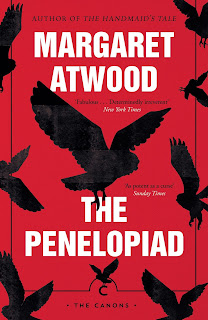Lincoln in the Bardo by George Saunders
 Mr Ghost Poop
Mr Ghost Poop
Lincoln in the Bardo by George Saunders is set in the graveyard where Abraham Lincoln's son is buried, following his early death. It follows both historical records about Willie Lincoln's death, and the bawdy after-lives of the ghosts who live in Willie's cemetery, for the first night of Willie's internment.
Story ☆☆☆★★
Now, the first thing I must warn of is doing what I did, and taking the blurb on the back of the book at face value. I had picked this up expecting an interesting historical ghost story with some dark humour. What I got was a discussion of corpse poop within the first three pages.
Orienting the mind at the beginning of this book is a challenge. At first it feels like a jumble of words, an irrelevant story, leaving one wondering where Lincoln comes into all this. It took a good twenty pages before I worked out what was happening, and that Lincoln in the Bardo actually tells two stories. One is the expected story of Lincoln's son's death and the president's grief. The other is of crude, occasionally slapstick ghosts, trapped in the cemetery and refusing to believe that they are dead.
Both stories are about grief -- grief of loss, and grief for life cut short, for things that could have happened but didn't. Lincoln's story I found fascinating, and would have liked to know more about. The ghost's stories ... not so much. These went on repetitively, which is partly the point. Saunders wants to demonstrate that this limbo is for those clinging too hard to a specific wrong in their life, and in order to stay in the ghostly plane, the ghosts must repeat their stories to prove that they are still there and, therefore, not dead. But from an entertainment point of view, it slowed the book's pacing and made it frustrating at times.
I was reminded time and again of Beckett's Waiting for Godot, as the ghosts walk-skim through the cemetery, repeating their stories to one another, reaffirming the existence of each other. And like Beckett, while there is probably literary merit to this, it didn't make for a particularly scintillating read.
Style ☆☆☆★★
The style of writing was an intriguing one. The whole book is written in quotes. Some of these are from real historical documents (newspaper clippings, diaries, letters, etc.) from the time, describing the night of Willie's death, the subsequent funeral, and the Lincolns' reaction. These made for a fascinating and beautiful narrative. In particular, there was a section describing a party, where perhaps ten sources were quoted describing the moon in quite different ways. The emphasis on perspective in story-telling, in the unreliability of eye-witnesses, in fascinating.
This style is carried over into the fictional ghost sections, as the story is told by quoted ghosts. While this is less interesting from an academic point of view, it allows for a consistency of format and allows Saunders to give each ghost a different voice.
However, for those who prefer an audiobook, I've heard this style is incredibly irritating. When reading, I tended to skim over the references saying what quotes had come from which source. The audiobook does not have this luxury, and pauses after each quote to give the source. Having given up on the Jonathan Strange and Mr Norrell audiobook due to constant footnotes interrupting the narrative, I can see how this would become incredibly frustrating.
Substance ☆☆★★★
I've talked already a little bit about similarities with Waiting for Godot, and there are also similar meanderings on existence. The ghosts both know and don't know about their own death. The true afterlife attempts to tempt them into accepting their own demise and moving on. Yet at the same time, the Reverend describes his own brush with the true afterlife and remains in ghost form to avoid damnation for an act he can't remember committing.
Saunders touches on the nature of grief, and the perception of grief -- various primary sources cast their opinions on both the truth and the gossip of the Lincoln family's grief. This is contrasted with commentary on the American Civil War, the grief for a single life against the grief of a nation for thousands of deaths, and the question of whether the war is worth it.
There is a touching upon slavery and the lives of African Americans under the Lincoln administration, but I would have enjoyed much more detail about this. It is a subject covered by the ghost sections, but not by the primary sources, which I think is a missed opportunity.
The Verdict ☆☆☆★★
My lack of enjoyment may stem from poorly set expectations. I was looking forward to a ghost story, and a meditation upon grief. What I got had far more dick jokes than I was expecting -- which would not normally be a bad thing. The issue, for me, comes in the way the two kinds of book are so very different, and I enjoyed the historical sources so very much more than the ghost narratives. Add to this that repetition makes the book a bit of a grind to read, and I'm left feeling that this book will only be enjoyable to a very particular kind of person. But not me.


Comments
Post a Comment